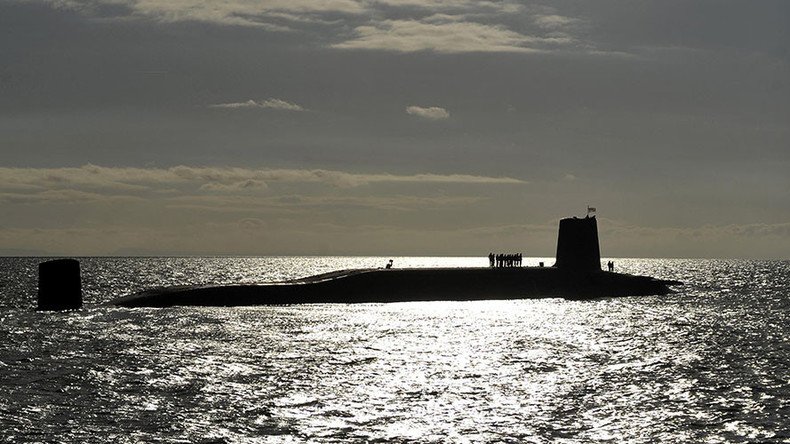Military wants ‘safe space away from public gaze’ to come up with policy, including Trident

Britain’s notoriously transparency-shy Defence Ministry says it wants to make major policy decisions without “public comment,” a Freedom of Information (FoI) request on the cost of Trident made by Reuters has shown.
Some commentators suggest replacing Britain’s ageing nuclear deterrent could cost upwards of £160 billion (US$227 billion).
The Ministry of Defence (MoD) said it hasn’t made its own full forecast and said in a statement: “The government needs a safe space away from the public gaze to allow it to consider policy options for delivering the deterrent in the most cost-effective way, unfettered from public comment about the affordability of particular policy options.”
Labour’s Shadow Defence Minister Emily Thornberry, a strident opponent of Trident renewal, told Reuters Tuesday that it was “astonishing” that the MoD could not actually come up with a price.
"That arrogant refusal to account to parliament and the public is simply unacceptable," she added.
While large sections of the Parliamentary Labour Party side with the government on Trident, the grass-roots of the organization appear to share the position of leader Jeremy Corbyn – a lifelong anti-nuclear activist.
The Scottish National Party is also vehemently opposed to renewing the nuclear arsenal situated north of the border at the Faslane submarine base.
There is even criticism from within the Royal Navy. Former nuclear submariner William McNeilly was discharged after compiling a report on safety and security and publishing it online.
“I didn’t release my report to discredit the Royal Navy,” he told RT in an exclusive interview in January.
“I released my report because safety and security [at the Trident base] is not being taken seriously. Because it’s a risk to the people and a risk to the land,” he added.












